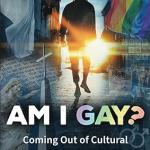A number of recent studies of the Elizabethan stage have emphasized its Christian dimensions. Debora Shuger writes, “if it is not plausible to read Shakespeare’s plays as Christian allegories, neither is it likely that the popular drama of a religiously saturated culture could, by a secular miracle, have extricated itself from the theocentric orientation informing the discourses of politics, gender, social order and history.” In his 2002 Shakespeare’s Tribe , Jeffrey Knapp argues that these scholars do not go far enough. While they stress “the centrality of religion to the study of Renaissance drama,” they accept part of the secular theater thesis they are opposing since they assume that “Renaissance playwrights [are] ‘Christian’ only cognitively or subliminally, rathyer than purposively and devotionally.” Thus not even recent revisionist scholarship “allows the possibility that Renaissance plays may have been intended and received as contributions to the cause of true religion,” nor have they considered the possibility that “Shakespeare and his contemporaries were capable of envisaging their profession itself – their acting and playwrighting – as a kind of ministry.”
For his part, Knapp aruges that “English theology and ecclesiology shaped the drama at a fundamental level, in helping to determine the conceptualization of the player and the playwright as professions, and of the theater as an institution; these self-images in turn disposed theater people toward the enacting of certain confirmatory plots, themes, and characters on stage; and thus religion had a crucial say in the creation of plays, in their content, and, by extension, in their presumed social effects.” In short, “religion had a more direct role in the production of plays than as the deep structure of dramatized ideology; it provided the rationale and even motives for acting and playwrighting.”















